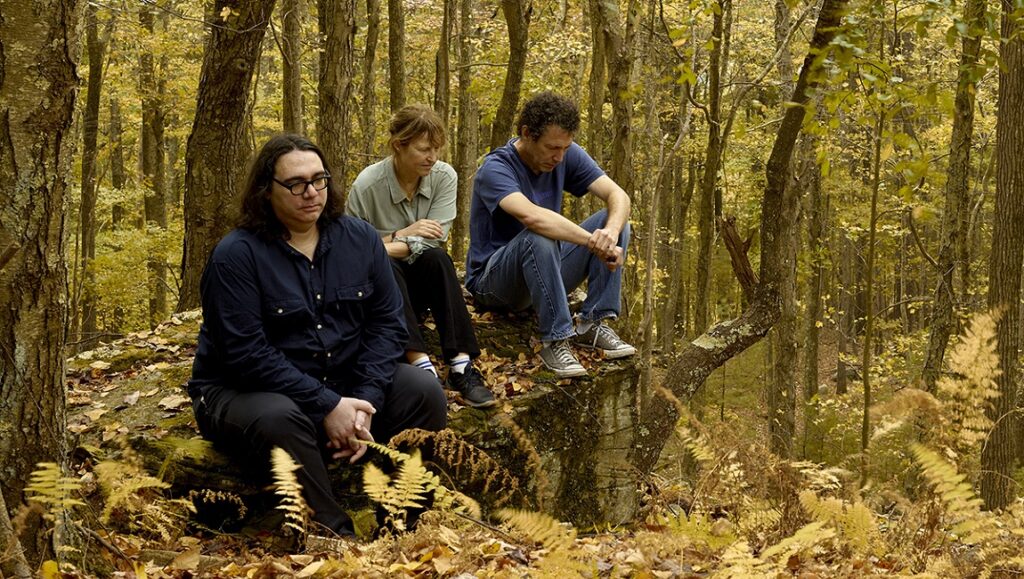In nearly four decades, New Jersey’s Yo La Tengo have never taken a real break, with the smallest gap between records being a measly four years. Alongside their studio albums, the group has also written soundtracks for Jean Painlevé’s underwater documentaries, Kelly Reichardt’s masterful Old Joy, and the Don DeLillo-penned Game 6, as well as being heavily featured in the films of Hal Hartley. All that work has resulted in Yo La Tengo developing a moderate (in relation to peers such as Pavement or Sonic Youth) but engaged and dedicated following; through experimentation and a dedication to the production of fascinating covers, they have become more than just your average indie rock band. This Stupid World marks the trio’s seventeenth studio album, and finds them continuing in their traditional style, which carefully oscillates between the beautifully delicate and energetically noisy.
Nothing highlights this dichotomy more than opener “Sinatra Drive Breakdown,” which begins with a minute of swirling fuzz and settles into a calmer rhythm. But that noise never fades, and the song retains a brash guitar riff that cuts into the soothing bass and vocals that carry the song along. For many musicians who would combine these quite disparate sounds, the threat of collapse into incoherent mess is very real, but Yo La Tengo makes the fusion feel incredibly natural. The following track (and This Stupid World’s lead single), “Fallout,” opens with an irresistibly catchy riff and an enticing vocal hook; the song is reminiscent of previous hits like 1997’s “Sugarcube,” albeit slightly more haunting here. This one-two punch also makes great use of the band’s multiple vocalists; both rely on overlapping harmonies, but the album’s exquisite mixing ensures no part of the sound is ever confused.
On “Aselestine,” Yo La Tengo briefly slows This Stupid World’s pace with a short, lo-fi acoustic cut which proves to be a more stripped-down track than any other on the album. Despite its minimalism, the song forgoes the sense of melancholia that — for better and worse — so often accompanies spare arrangements; this band has constantly proved capable of creating thoughtful, sensitive music that doesn’t wallow in sadness, and that balance remains perfectly in place here. Like all of This Stupid World’s tracks (and most of Yo La Tengo’s material), the song’s lyrics don’t seek to convey any profound meaning or trade in intimate introspection; instead, they offer more direct and relatable expressions of pure emotion. Lyrics like “Push the pin / Into the map / And I find you” or “I see the moon rise as the sun descends / So far from you” might feel basic in isolation, but they are so seamlessly and organically integrated into the band’s graceful music that it’s hard not to be moved at least some of the time.
The rest of This Stupid World is tightly constructed and never falls into complacency. From the seven-minute title track — which remains the album’s loudest and most experimental jam — to the jangly pop chords of “Apology Letter,” no two songs occupy the same sonic space, though there remains a strong sense of cohesion to the project. It would be easy to declare This Stupid World Yo La Tengo’s best album in a decade (and realistically, it probably is), but that language could also be construed to suggest an essential deficiency to their work of the last ten years, which would certainly be an inaccurate examination. They’re a band who remain fairly immutable in their eminence and constancy, with even their lesser records remaining worthy products. And so, while their sound has never changed to any drastic degree — which is so often a death knell for artists — and their career has never propelled them to mainstream stardom, Yo La Tengo have produced one of the most steadfastly outstanding discographies of the past several decades, to which This Stupid World is another brilliant addition.
Published as part of InRO Weekly — Volume 1, Issue 7.


Comments are closed.